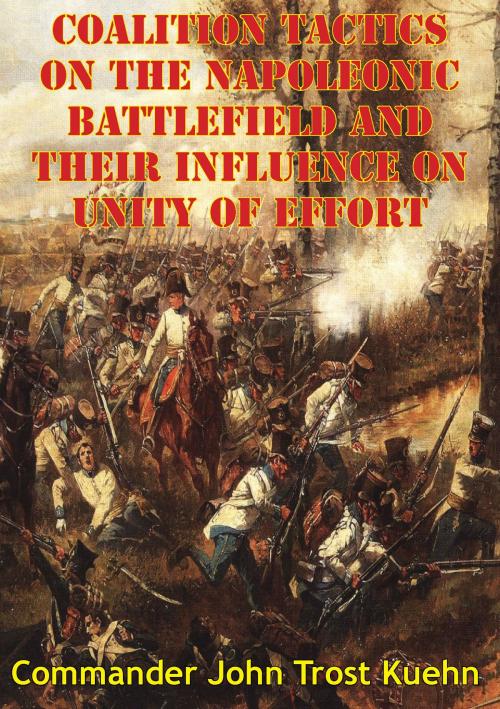Coalition Tactics On The Napoleonic Battlefield And Their Influence On Unity Of Effort
Nonfiction, History, Spain & Portugal, France, Military| Author: | Commander John Trost Kuehn | ISBN: | 9781782898771 |
| Publisher: | Wagram Press | Publication: | August 15, 2014 |
| Imprint: | Wagram Press | Language: | English |
| Author: | Commander John Trost Kuehn |
| ISBN: | 9781782898771 |
| Publisher: | Wagram Press |
| Publication: | August 15, 2014 |
| Imprint: | Wagram Press |
| Language: | English |
The mechanism for the operation of our military forces beyond the shores of the U.S. is the modern coalition from the grand alliance of NATO to simple bilateral relationships. Understanding the dynamics of coalition warfare is important for a U.S. Military that often finds itself operating as the dominant member of any coalition it joins. One of the major considerations listed in the portion of joint doctrine which addresses multinational coalitions is the concept of unity of effort Current U.S. Army doctrine has long recognized the importance of unity of command. However, the latest drafts of the new Army keystone doctrine publication, FM 100-5, have upgraded the principle of unity of command to unity of effort. The efficacy of this change recognizes the realities of operations in a world of coalitions, trans-governmental agencies, and private organizations all which find themselves often in league with our military as we strive to reach common (not always strictly military) objectives.
This monograph will examine two historical case studies from the Napoleonic Wars (1792-1815) in order to explore the relationship between tactical and doctrinal differences between different members of the same coalition. The first case study examines the coalition army of Marshal Suvorov at the battles of the Trebbia and Novi in 1799. The second example will move forward in time to the Russo-Prussian army of the spring of 1813 and its performance at the battles of Lützen and Bautzen.
Although history does not provide us with exact recipes for implementing complex solutions in a complex world, it does provide a means to understand the dynamics of human behavior on a vast scale. The Napoleonic period represents a veritable laboratory of coalition warfare and provides a means of applying the lessons of a historical period to understanding the dynamics of coalitions.
The mechanism for the operation of our military forces beyond the shores of the U.S. is the modern coalition from the grand alliance of NATO to simple bilateral relationships. Understanding the dynamics of coalition warfare is important for a U.S. Military that often finds itself operating as the dominant member of any coalition it joins. One of the major considerations listed in the portion of joint doctrine which addresses multinational coalitions is the concept of unity of effort Current U.S. Army doctrine has long recognized the importance of unity of command. However, the latest drafts of the new Army keystone doctrine publication, FM 100-5, have upgraded the principle of unity of command to unity of effort. The efficacy of this change recognizes the realities of operations in a world of coalitions, trans-governmental agencies, and private organizations all which find themselves often in league with our military as we strive to reach common (not always strictly military) objectives.
This monograph will examine two historical case studies from the Napoleonic Wars (1792-1815) in order to explore the relationship between tactical and doctrinal differences between different members of the same coalition. The first case study examines the coalition army of Marshal Suvorov at the battles of the Trebbia and Novi in 1799. The second example will move forward in time to the Russo-Prussian army of the spring of 1813 and its performance at the battles of Lützen and Bautzen.
Although history does not provide us with exact recipes for implementing complex solutions in a complex world, it does provide a means to understand the dynamics of human behavior on a vast scale. The Napoleonic period represents a veritable laboratory of coalition warfare and provides a means of applying the lessons of a historical period to understanding the dynamics of coalitions.















